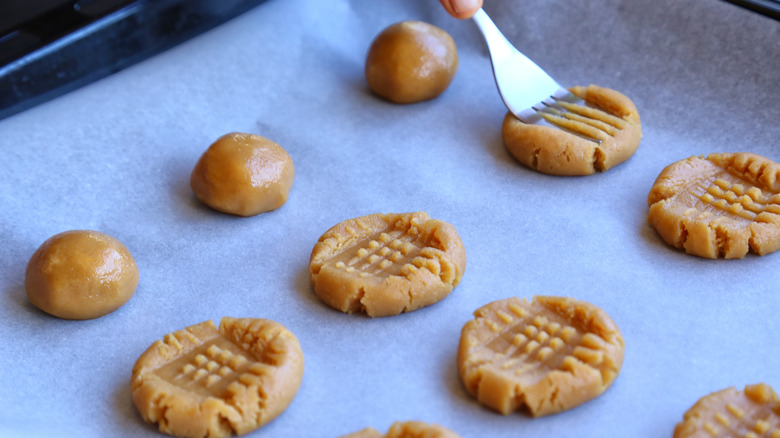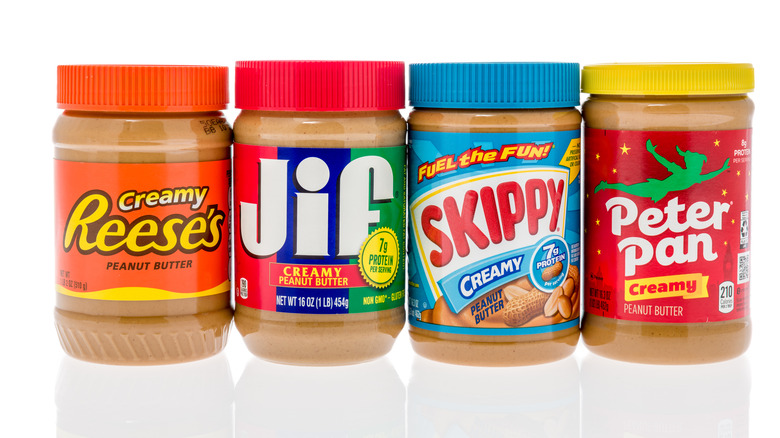The Only Type Of Peanut Butter You Should Use For Cookies
If you thought the essential peanut butter debate came down to chunky versus smooth, think again. Another nut butter dichotomy is dividing PB&J lovers into two camps: natural versus conventional.
At first glance, natural peanut butter deserves all the accolades. It's better for you, thanks to its use of two simple ingredients: peanuts and salt (via natural peanut butter brand Teddie). More conventional brands, however, like Jif and Skippy, tend to include additional ingredients. Jif peanut butters consist of peanuts, as well as sugar, hydrogenated vegetable oils, and molasses, along with trace amounts of other add-ins.
Yet while conventional brands rely on more than just nuts, their oils don't separate as easily. Such separation poses a huge annoyance when it comes to stirring natural peanut butter, not to mention a hand workout. In natural peanut butter, ground peanuts release oil that then rises to the top of the container. The separation of the oil and the nut butter is a good metric for double checking that your peanut butter truly is au naturel. It does, however, require the extra step of mixing — a recipe for all things messy.
Such a difference between natural and conventional peanut butters may not seem like a big deal, but it's relevant for any baking expenditure. The next time you're whipping up a batch of peanut butter cookies, tread carefully in choosing a jar of the signature ingredient.
Using natural brands runs the risk of uneven peanut butter
Cook's Illustrated recommends baking peanut butter cookies with products from traditionally creamy brands like, you guessed it, Skippy or Jif. Such butters have smooth, consistent textures that easily combine with any cookie dough.
Echoing this sentiment, The Kitchn warns bakers to stay away from natural peanut butters. They have a thicker texture susceptible to yielding dryer cookies. However, in and of itself, dried-out peanut butter is not a lost cause, as it can be salvaged with added oil.
Yet if natural peanut butter is all you have on hand — or if the oils in conventional brands freak you out — you don't have to pick up a new jar. You can still use a natural version in your dough, just make sure to thoroughly stir your nut butter before doling it out. This due diligence ensures that your peanut butter is the right texture for your purposes (via Cook's Illustrated).

